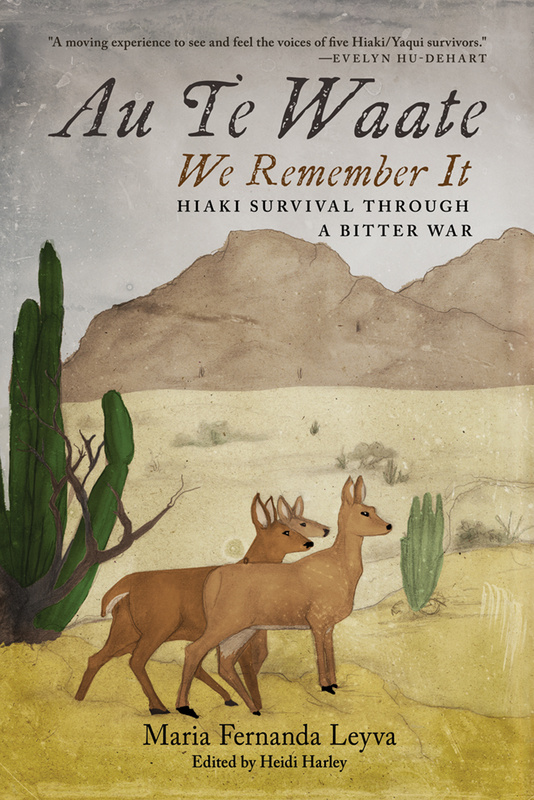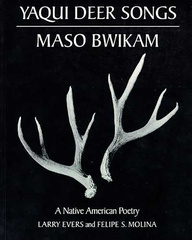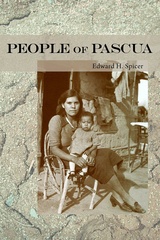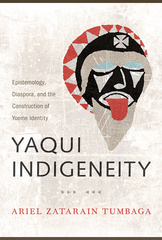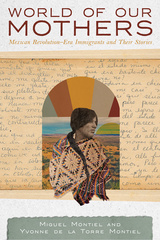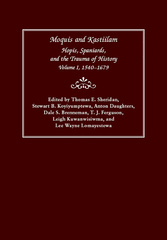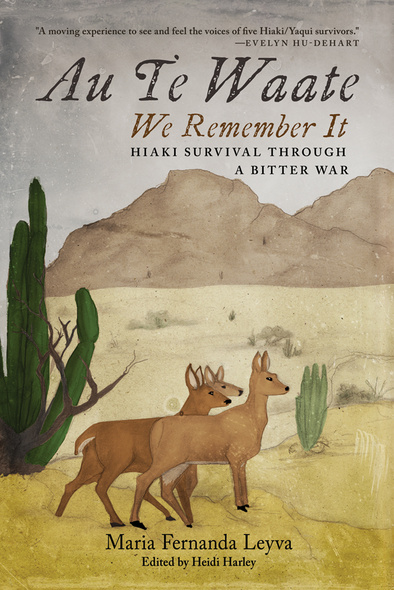
Au Te Waate / We Remember It
Hiaki Survival Through a Bitter War
This compelling work delves into the personal narratives of Hiaki (Yaqui) individuals who endured the tumultuous period from 1900 to 1930, when they faced systematic attacks, conscription, deportation, and enslavement under Mexican government policies. Presented in both the original Hiaki language and English translation, these accounts offer an unparalleled glimpse into the lives of those who resisted and survived the era’s harsh realities. The narratives describe military engagements, the struggles of refugee life, forced labor, and the resilience of families under extreme duress. This work provides a unique and unvarnished account of the impacts of Mexican colonialism and aggression on individuals and families, completely from the Hiaki perspective.
Au Te Waate / We Remember It is not just a historical account but a linguistic treasure, preserving the naturally produced speech of five Hiaki speakers from a previous era. Transcriptions of interviews recorded by author Maria Fernanda Leyva with family members and friends provide invaluable insights into the Hiaki language. The interviews document and preserve the narrative styles, vocabulary, and grammatical constructions of the time.
This work also serves as a crucial resource for scholars of linguistics and history alike, capturing dialect variation and illustrating the linguistic evolution of the Hiaki community. Additionally, for Hiaki people studying their own language, this book stands as a rich repository of cultural and linguistic heritage, meticulously maintained through side-by-side translations and contextual historical introductions.
The narratives in this book are anchored by the experiences of five Hiaki speakers, whose stories of displacement, survival, and resistance provide a deeply personal perspective on the broader historical events of the Porfirio Díaz dictatorship and the early years of the Mexican Revolution. Au Te Waate / We Remember It stands as an important record, preserving these critical voices for future generations and offering profound insights into the resilience of the Hiaki people.
What a joyful and moving experience to see and feel the voices of five Hiaki/Yaqui survivors (men and women) reliving moments and episodes of their long, tortuous, turbulent, and resilient history of resistance to deportation and genocide in their own language! Aided by the English translation, you can almost hear them tell their stories as a living tribute to the Hiaki people and testament to the will to survive of all Indigenous peoples around the world.’—Evelyn Hu-DeHart, author of Missionaries, Miners, and Indians: History of Spanish Contact with the Yaqui Indians of Northwestern New Spain, 1533–1820
‘This book offers unprecedented access into the daily life experiences of Yaquis from 1900 to 1930, a perilous time in their history. Readers can understand, from firsthand perspectives, how Yaquis resisted the wars of extermination and were resilient under unfathomable pressures. Recovering these interviews from fifty years ago, these voices in the Yaqui language are a priceless historical contribution.’—Andrew Offenburger, author of Frontiers in the Gilded Age: Adventure, Capitalism, and Dispossession from Southern Africa to the U.S.-Mexican Borderlands, 1880–1917
Heidi Harley is a professor of linguistics at the University of Arizona.

